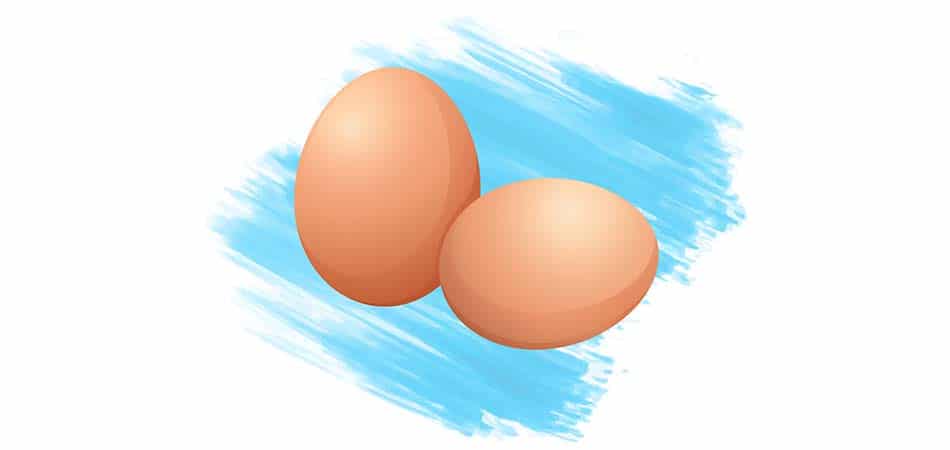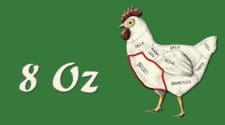What makes eggs great is that they’re so easy to prepare. They can be added to all sorts of dishes or enjoyed in the simplest possible ways. A poached egg, a muffin, and some hollandaise, for example, should be enough to satisfy your energy needs, even on the busiest mornings.
Eggs are a good choice even if you’re health conscious. As long as you follow a healthy balanced diet, you should be able to add up to three eggs to your meal plan for the day.
Calories in different types of eggs
Despite no longer being considered unhealthy, there’s still the matter of calories. While eating an egg daily won’t hurt if you stay within the correct range of caloric intake, it may cause some health problems if you’re going overboard.
Health concerns make many people curious about the number of calories in two eggs (a typical serving).
The common large chicken egg contains about 72 calories—that’s 144 for two. That may seem like a lot, but given that eggs are quite filling, they actually make it easier to stay within your caloric requirements.
A duck egg, on the other hand, provides approximately 130 calories. That means two eggs are about 260 calories. Duck eggs are more nutritionally dense than their chicken-laid counterparts. However, the difference can be partly attributed to the fact that duck eggs are typically larger.
Goose eggs are even bigger than duck eggs, weighing at roughly 144 grams each. They correspondingly provide a lot more energy than the previous two types of eggs. A single goose egg has 266 calories. Two of them come to 532 calories—around a quarter of the average adult’s daily caloric needs.
Goose eggs aren’t the biggest egg you can find in the market. A single ostrich egg weighs about 1,400 grams and provides about 2002 calories. That’s 4004 calories with just two. Fortunately, you won’t be eating an entire ostrich egg, as it’s equivalent to 28 normal servings.
While these giant eggs are definitely fascinating, you shouldn’t forget about the tiniest you’ll probably find in markets—the quail egg. A single quail egg only weighs nine grams and yields 14 calories. That’s 28 calories for every two eggs you eat.
|
Eggs |
Calories in two eggs, kcal |
Calories in an egg, kcal |
|
Chicken egg |
144 |
72 |
|
Duck egg |
260 |
130 |
|
Goose egg |
532 |
266 |
|
Quail egg |
28 |
14 |
|
Ostrich egg |
4004 |
2002 |
Important reminder
Different eggs have different caloric values. Remember to take that into account as you plan your meals, especially if you’re into athletic pursuits or bodybuilding. It’s important that you don’t go over your target caloric intake so that you can reach your goals in the fastest possible time.
However, don’t forget that knowing the calories in two eggs is just one part of the equation. Eggs also provide both macronutrients and micronutrients—and as you’d expect, there are differences in these as well. Know your specific needs or requirements and plan accordingly.
Reference
- Egg nutrition retrieved from: https://www.nutritionix.com







Leave a Reply